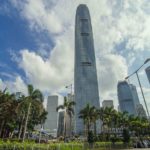Taxation in Hong Kong – Straightforward or Simple?
Some people have the concept that the taxation system in Hong Kong is exceptionally simple. Of course, some people may say so considering that the current Hong Kong Inland Revenue Ordinance does not contain many pages, at least not when compared to the tax provisions of many other jurisdictions. Nethertheless, whether the Hong Kong tax system is also a straightforward system is up for debate.
Hong Kong Taxation System Sample
Take the charging provision for the territory scope of profits, article 14 of the Inland Revenue Ordinance, as an example says in article 14(1) that ‘…profits tax shall be charged … on every person carrying on a trade, profession or business in Hong Kong in respect of his assessable profits arising in or derived from Hong Kong … from such trade, profession or business …’.
Unfortunately the Inland Revenue Ordinance does not explain these words in much detail, so that even the most straightforward cases are actually made complex and much is left to the tax advisers/lawyers and the Courts.
Of course, some Departmental Interpretation and Practice Notes have been issued by the Hong Kong Inland Revenue on these subject matters, along with some published Advanced Rulings, such as Case No 44 regarding a Hong Kong data center and Case No 45 regarding a Hong Kong IP provider, but these are of limited use and cannot be considered as law as such.
In general, this means that article 14 of the Inland Revenue Ordinance is only applicable when there is a trade, business or profession in Hong Kong that produces a profit arising in or derived from Hong Kong. In other words, the profits must have a source in Hong Kong.
Have the local Courts clarified the taxation system ?
Over the years Hong Kong taxation case law has established general principles and rules in order to determine the source of profits. In CIR v Hang Seng Bank Limited [1990] 3 HKTC 351 it was said that ‘one looks to see what the taxpayer has done to earn the profit.’ This statement was further refined in CIR v HK-TVB International Limited [1992] 3 HKTC 468, which said that ‘one looks to see what the taxpayer has done to earn the profits in question and where he has done it’.
The Hang Seng Bank case also considered particular types of profits and general rules were laid down for the determination of the source of such profits. For example, some of these general rules established that the source of trading profits is where the contracts for purchase and sale are affected (see the Magna case below). It also indicates that service fee income is sourced where the services are performed and that profits from lending arise at the place where the money is lent.
In CIR v Magna Industrial Company Limited [1996] 3 HKC 210 it was said that for trading profits the ‘totality of facts must be looked at’ in determining what the taxpayer did to earn the profit. Generally there was much reliance in the past on the above-mentioned established general rules for certain types of profits.
Some Court cases, however, seem to have deviated from this practice. See for example ING Baring Securities (Hong Kong) Ltd v CIR [2007] 10 HKCFAR 417, Ngai Lik Electronics Co Ltd v CIR [2009] 12 HKCFAR 296, CIR v Datatronic [2009] 4 HKLRD 675, CIR v C G. Lighting Limited (CACV 119/2010) and Li & Fung (Trading) Limited v CIR (HCIA 3/2010).
How can HKWJ Tax Law & Partners help?
As seen, taxation in Hong Kong is not as simple as commonly hold. As your legal and tax representative, HKWJ Tax Law & Partners can assist you with tax management and avoid or resolve tax disputes and tax audit or investigations with the IRD during any stage of the process.
On the other hand, we can proactively assess your tax position and liabilities in order to carry out a proper tax planning that will optimise your taxes as well as avoid costly tax disputes with the IRD.






